Episode 142 – C. Shakhawat Sultan

Podcast: Play in new window | Download
Subscribe: RSS
Introducing C. Shakhawat Sultan
C. Shakhawat Sultan is the business development manager at CodeRex. He works hand in hand with the developers and the marketing team to create useful plugins. He is passionate about WordPress and loves to contribute to the community.
Show Notes
Twitter | SultanRoyal1
LinkedIn | C-S-Sultan-Royal
Facebook | CodeRexCo, RexTheme
Websites | CodeRex, RexTheme
Preferred Pronouns | He/Him
Episode Transcript
Tara: This is Hallway Chats, where we meet people who use WordPress.
Liam: We ask questions and our guests share their stories, ideas, and perspectives.
Tara: And now the conversation begins. This is Episode 142.
Tara: Welcome to Hallway Chats. I’m Tara Claeys.
Liam: And I’m Liam Dempsey. Today we’re joined by C. Shakhawat Sultan. Shakhawat is the business development manager at CodeRex. He works hand in hand with the developers and the marketing team to create useful plugins. He is passionate about WordPress and loves to contribute to the community. Welcome, Sultan. Thanks for joining us.
Shakhawat: Thank you, Liam. And Hi, Tara. Nice to be joining you, too.
Tara: Thanks for being here today. We’re really glad that you’re here. I know it’s late where you are, so we’re grateful for you staying up or waking up to be with us.
Shakhawat: I’m excited to talk with you guys.
Tara: Oh, we’re excited too. Thanks. Would you tell us a little bit more about yourself?
Shakhawat: Yeah, sure. I’m Sultan, a business development manager at CodeRex, and I work as a product manager at RexTheme which is a sister concern of CodeRex. So right now I’m in charge of developing plugins in my company and helping out my marketing team and developers to interact properly so that plugin development can be done properly. Besides that, I just completed my graduations. And not really that old I would like to think.
Tara: Do you want to tell us how old you are?
Shakhawat: I’m 27 right now. That’s a great age.
Liam: That is not as old as I am.
Tara: For our listeners, where are you located?
Shakhawat: Right now I’m talking with you from Dhaka, Bangladesh. This is where I was born. My whole life I grew up here. So that’s what I’m talking from.
Tara: Great.
Liam: And it’s very late where you are, so thank you very much for joining us and accommodating our little show to be so pleasant. Tara and I are in early afternoon. What are you? About one in the morning now?
Shakhawat: It’s 12:30 a.m. right now.
Tara: Okay. Great. So tell us a little bit about how you got started in computer stuck, WordPress, all of the above.
Shakhawat: To be honest, this industry is pretty new for me. In WordPress, I am only here for about two and a half years. Before that, I used to be part of international call centers. In fact, we used to be the guys that used to call you guys to cell phone plants and stuff like that. That’s what I was part of. Then, all of a sudden, I decided to change the industry as that cannot be taken as a career. I wanted a career that had a future. So I had to switch industries. And meanwhile, continued my education. And here I am today, thanks to CodeRex.
The owner of CodeRex knew me personally, so he mentored me from nothing to where I am now. I know about WordPress or digital marketing is basically what I’ve learned from Mr. Lincoln, the owner of CodeRex. That’s how I got into the WordPress industry. Over time, I’ve seen that things are very different in your community. I mean, if you look at other communities, people are always looking at how to deface another company and grow themselves. But the WordPress community is something where I see that everybody’s trying to improve together. And that’s what intrigued me into staying in this industry, to be honest.
Liam: Yeah, that’s a really interesting point around the supportive nature of the WordPress community, especially from business to business and agency to agency. And, yeah, inevitably, there’s a little bit of competition. We want to have the best plugin or a couple of the bigger agencies might put in for work for some of these bigger enterprise clients. But by and large, it’s a supportive environment. I’m glad that you’re experiencing that as well.
You said that you just finished your studies, you just got a degree. Did I hear that correctly? What did you graduate with? What did you study?
Shakhawat: Computer Science and Engineering. This is my background. Tara asked me question that how did I get into tech. I was excited about computing ever since I was in school. So back then I used to learn coding using Visual Basic. Then, eventually, I had to learn C programming on my own. Due to my jobs, I couldn’t continue my studies for a while. But then when I got back to the university, I thought, let’s get on track with the one that I’m passionate about. So I had to get into Computer Science and Engineering.
Liam: That’s cool. So you’re in a business development role now. What does that mean? What does that look like day to day for you?
Shakhawat: Basically, I have three roles in the company now. Business development is the main role, where I have to look at how the company is presented to everybody. I have to think about how the company can grow. For example, CodeRex is a web development firm. So I have to decide how I’ll present my company to the people that are coming to us, or how people will see that this is a reliable company.
Along with that, I also need to maintain the fact that people who are working here are thinking positive about the company itself. So even though I’m not the project manager—we do have a project manager—both of us play hand in hand to make sure that our employees are always motivated, and they love to work in this environment. So that’s the main role that I follow in business development. Aside from that, obviously, we have client meetings, finding new ventures for the business. Those things are the general responsibilities of business development that I do have today.
Tara: So are you utilizing your coding and programming skill set or not as much anymore, it sounds like?
Shakhawat: Basically, since I’m more into marketing role…The RexTheme side, they are into plugin development. So I’m actually taking the lead in the marketing of all the plugins. We have about five. Under me, there are a few people who are acting as product managers. I’m also acting as a product manager for two of our core plugins because they’re more complicated.
Initially, when I joined here, I wasn’t really the business development manager. When I joined here, I was just a marketeer. I was taught to be a digital marketeer. Eventually, it was decided that maybe I could go into a larger role, and went into business development besides marketing. So the marketing side has never left me. It’s still there. I use coding to a minimum of let’s say two front end basis. That’s HTML and CSS. I don’t really get to code within the plugins and stuffs. We have developers for that. They are like 10 times more experienced than I am. So why put my hand into something that can be done better by somebody else.
Tara: Yeah, that makes sense. I understand that. Do you prefer the marketing? Are you enjoying it?
Shakhawat: Oh, definitely. As I said, I was part of a call center, and it’s all about marketing. So I’ve been in the marketing for over 10 years now. Of course, I love it. I’ll just like to share one interesting thing. When I joined digital marketing, it became so different. You see, when you are a salesman, you can actually say that okay, I’m confident, I’ll get five sales today. But when you’re in digital marketing, it’s not about sales. It’s about presenting your company and growing. And it’s so different, that you do not really target for number of sales. You actually target for reaching a lot of people, letting people know how useful you are, rather than they should buy it and pay your money. So that’s what I’m more focused on right now.
Liam: I love that perspective. That’s fantastic. What is marketing for a development agency, a plugin agency looks like in a COVID-19 world where you’re not going to WordCamps, you’re not going to local meetups, you’re not even probably going to visit the big businesses in the area that might need your services, that might benefit from your services, but you’re not going to come down and have a cup of tea or a coffee with them? What does that look like for you?
Shakhawat: I’ll just show you both ends of the swords. You see, during the lockdown, the web development side of her company suffered a lot because web development only occurs when businesses are running well. And the website we make are for business that have physical business. So during COVID, they decided that to cut up their expenses they don’t need to develop a website with a good agency. They rather stay with what they have. So any web development agency suffered a lot during the lockdown.
But, again, when you go into plugin development, it really depends on what plugins you have. Certain plugins are essential and helpful during the lockdown. For example, if I say Zoom, Zoom is an application that could be used more during the lockdown than before. Again, our company had the fortune to have WooCommerce related plugins such as Product Feed Manager, or we had a VR plugin for WP VR which people can create virtual tours. Now, these are certain things that actually boomed during the lockdown.
Real estate properties were selling only because they had a way to showcase properties online. Nobody were visiting at that time. So virtual tour or virtual reality, in fact, saw a big rise in usage. Then, the online market during COVID, UK, US they saw a huge rise in online sales. So any company that had products that are favoring for ecommerce or online sales, they actually did pretty well. The marketing wasn’t that difficult, because all you had to do is reach out to the people that have online shop. And most of them are interested because now they’re looking to sell more. They have more opportunities.
But then again the downside is people who doesn’t have those sort of plugins. If you look at plugins that are for personal use, those plugins are going to be in very, very bad shape during the lockdown. Because people who use plugins for personal satisfaction or personal use, there’ll be like, “Okay, I’m losing money. So right now I can live without it.” That’s the scenario actually.
Liam: That’s interesting. Go ahead, Tara.
Tara: I was going to ask if you and your team have always been remote. Or is that…?
Shakhawat: No. We had to be remote during COVID because our country is not really in good shape in terms of maintaining COVID. Even though the death rate is low in our country, but the affective rate is really high. So we had to make sure that we don’t let our employees get affected. So we have to move remote during that time. But it did hamper our performance a lot. Because what I believe is in terms of marketing or project management, if the people are in front of you, it’s easier to understand their mindset than when you are talking online. Because at that time, you don’t get the picture their body language, or the tone. It’s really difficult. So when we moved remote, it did affect our business. But as we said, we tried our best for our safety. Right now we’re not working remotely. We are working from our office.
Liam: So let me ask you about WordCamps back when we all used to go to them. You started part of our conversation talking about how you find that the community is quite supportive of itself and those in it. Share with us your first experience of a WordCamp. Was that something that you decided to go on your own? Did CodeRex send you? Did you bring it up to them and said, “Hey, maybe I should go to this”? Talk to us about that. What’s your experience like?
Shakhawat: I’ll tell you certain things. It’s pretty interesting. I didn’t go to any WordCamp outside my country. That’s the downside of it because I’m not experienced enough. But there was a WordCamp situated in Bangladesh, Dhaka. I’ll tell you my company was responsible. My company and there was another company. Actually, it was a total of about five web development companies that joined together to organize the whole thing. And CodeRex was one of those companies. So we had to work hand in hand in preparing stuffs for that WordCamp itself. Then again attend that as a company. That was pretty fun.
But I’ll tell you a funny story. That day I had a medical emergency with one of my family members, so I couldn’t attend the WordCamp from the beginning. Then when I managed to find some time to go there, it started raining like cats and dogs. So midway, on my way to WordCamp, I was already soaking wet. Then by the time I reached WordCamp Dhaka, it was probably the last two sessions going on. So I almost missed it. It’s sad, but yet…you know, I enjoyed the day for some reason, because I was excited about the event. When you have something hard to get, you love it more.
When I went there, it was still bust. A lot of people came in and they were all interested in knowing about each and every company. We got to meet some pretty good people from abroad as well. So it was fun. I mean, it was interesting. That was the first time I went to a WordCamp. Before that I did attend WordPress meetups, but those are all local so you don’t see foreigners there.
Before that any WordCamp to place. I was responsible for arranging the content for the company. But basically, it was the owner who visited. Lincoln himself went there. I don’t know if you remember that Walk to WordCamp event by Marcel Bootsman. Marcel is basically a close personal friend with Lincoln. So we were one of the sponsors for him. And we were covering for that. I was actually keeping track of each and everything Marcel was doing. I had to prepare content on a regular basis, keep my owner updated about what he’s doing. We had to make sure that Marcel gets all the support he gets. It was a pretty neat event and a noble one.
Liam: Didn’t he walk…? Marcel, I think, lives in Holland, right? And he walked to WordCamp Europe. You know, walk like hundreds of kilometers to raise money for some organization. I can’t remember specific, but that’s it. Right?
Shakhawat: Right. Right. So yeah, we were covering all of that. And that was pretty exciting for me, because it was not about to sponsor walking there. I could see that people were actually reaching out to him and donating money to him because they knew that the cause was to allow some people to visit WordCamp that cannot afford to go there. You see, in the WordPress community, there are people who are really rich and there are people who have a hard time. And Marcel did this event, which actually got a pretty good amount of donations. I could see the WordPress community opening up. Even you know that people open their selves to Marcel saying that they could live at their place on their way. So those things were really amazing. We didn’t expect that. I was thinking he’s going to get money to go and stay in hotels and stuff. But no, people were actually letting him live with them. So that was a big thing for me. That’s when I knew that the community is actually very different.
Tara: Yeah. Yeah. I remember that now. That does speak volumes about this community. And everyone that we’ve talked to on this podcast, who has interacted in any way with WordPress, I think has felt that support that’s very unusual in other places.
I would like to ask you a question that we ask of everyone, which is about success. So we like to ask our guests how they define success and what it means in their life.
Shakhawat: To me, I would go a different approach with success. You see, many people say that being successful is when you earn a lot of money and stuff like that. But to me, you get success every day. You see, everything you do has a purpose. To me, success is when the purpose is met. Now, it could be as simple thing as waking up at 9 a.m. If my goal last day was I’ll wake up at 9 a.m. tomorrow, and if I manage to wake up, that’s a success.
So it sounds very vague. But then again, if you look at a bigger picture, today, if I wanted that, okay, today, I’ll go to the office, and I’ll make sure I’ll present my product to people and they will like it, they’ll like my presentation. If they actually do like it, that’s also a success. I think every day you have success, and you will have failures, and you will have opportunity to learn. So success is something I would say is not a single goal. Success is when you reach any goal that you had planned for, and it worked out. Not on its own; on your own efforts. So that’s what I define success by.
Liam: I really like that. As you were talking, I was listening and jotting down, and I interpreted what you said as mindfully achieving our purpose. Mindfully achieving what we set out to do. And I really liked that because you’re pointed then make success very much almost a constant ebb and flow and it requires mental attention or requires energy, it requires dedication. But it also means that there’s another opportunity right around the corner.
Shakhawat: I’d like to add something to that as well.
Liam: Please.
Shakhawat: You see, when I say that successes every day, it doesn’t just mean that I’m just saying it for the sake of saying it. If you can be happy about every little thing you achieve, that motivates you more to do better in the next thing you do. So let’s say today, you decided that okay, my target today is completing…let’s say you’re writing articles and you plan that today I’ll complete two articles,” if you manage to do that, and you take that as success, then the next day you will take another challenge and you will feel more confident that okay, I managed to get this many success yesterday, this will also be a success.
Motivation is something that helps you achieve things that you don’t usually get being depressed or intention. To be frank, in WordPress, more people are developers and they talk in their language. When you’re creating a program, you’re trying to find an algorithm. And if your intention that, “okay, let’s say today, I don’t have time, amount of time,” if you’re worried like that your algorithm is going to get messed up no matter how much you try. But if you think that, “okay, I have enough time, I’ll do it if I’m motivated,” you will see that you need less attempts to successfully find an algorithm and start coding as fast as you can.
So when I talk about success every day, the more success I can claim, the more confident I get. And that’s when I start to see that every activity has a purpose. And I have to judge each and every purpose to define my success rather than thinking that, all right, my ultimate goal is being a millionaire. Now, that’s not a success definition to me.
Tara: I like the idea that every day is an opportunity, and an opportunity to learn. We have a tradition in my family here during the season before Christmas here, where we light candles, and we talk about three things that we’re grateful for. And we’ve added in “what did you learn today?” and I have found that to be very challenging. But yet, if you really think about it, you can think about something that you did learn. It might not be something monumental, but it might be like, I learned that pancakes with bananas burn more easily than pancakes without bananas, or something silly. But you can think about something that you learned every day. So I like that idea of success. And I think part of that is thinking about what opportunities you have every day to learn. So thank you for sharing that.
Shakhawat: It’s great.
Liam: I made pancakes breakfast today.
Tara: I saw that Liam. Actually, it was my daughter who had the pancake experience yesterday. That wasn’t my own lesson.
Liam: Well, do you have to learn directly, Tara? Or can you learn by observation?
Tara: Indirectly. This is true. This is true. Yeah. Can you talk to us a little bit about CodeRex and what kind of plugins they make?
Shakhawat: Okay. I’ll just, again, break down to CodeRex is basically for web development. Our sister concern is RexTheme, where we develop plugins. It’s the same company. It’s just we made it separate so that it’s easier for our clients to understand. So when you go to CodeRex, it’s about any types of websites you need developed, maintenance, or anything, that’s done in CodeRex. CodeRex is a company where people come to higher quality developers. We mostly provide white label services to other agencies as well. So that’s what CodeRex does.
We also decided that since it’s where we are in the WordPress niche, so why not go for a plugin development? That’s when RexTheme came up. RexTheme is the sector where we have a set of developers and marketeers that are dedicated to individual plugins. Let’s say right now we have about five plugins. Three of them are for WooCommerce. Our most prominent one is WooCommerce Product Feed Manager. Then we have a VR plugin, WP VR, which is basically to create virtual tours. Then we have a plugin called Media Storage to Cloud. Nowadays people love to use Cloud a lot. It helps enhancing the website. The Media Storage to Cloud was basically aimed at people who wants to connect what is to their cloud storages.
Apart from this, we have a couple of small plugins, such as Variation Swatches if you know what that is. Let’s say you have a variable product that you sell. Variation Swatches lets you present that with buttons. People can choose from buttons rather than a drop-down menu. So that’s a small plugin.
But then we have another one which is very new, abandoned cart recovery. This is very useful for WooCommerce or any e-commerce actually, that when someone abandons a cart, you can reach them back. And we’re working on our funnel plugin, which is basically kind of be one of our largest projects so far.
At RexTheme, our team is not really that large. We are a team of 15 altogether in the office. And we maintain all these plugins just 15 of us. The marketing team consists of four of us, including me. Then there Jahir and Rafi and Shammi. There’s four in the marketing. We have two lead developers that works in the back end. One is Sadi and other is Sakib. We have two front end developers. One is Tipu and another one is Belal. Then we have two dedicated designers. So you obviously know that UX designers are really important. So we have dedicated UX designers, which is Mahi and Shanthi. And recently, we hired someone for video editing as we are going into YouTube nowadays. So he’s Tareq. And on top of all of us, there is the project manager, obviously. That’s Farshid. That’s our team.
Tara: Yeah, that’s a good team. I’ve imagined that virtual tour plugin is really popular right now with all of the COVID restrictions. I work with a lot of schools and they do virtual tours. I imagine a lot of organizations are doing that now. So I would guess you’ve seen an increase in that.
Shakhawat: Oh, definitely. During the COVID actually we released a huge discount as well because we knew people want that. Keeping it expensive isn’t making any beneficial for us neither for them. So we gave a huge discount, and it really boomed. But now I think in WordPress, we have over 8,000 installations on the free version itself. And we have thousands more customers that are doing pro. That plugin really boomed during COVID. Yeah, it really did.
Liam: Sultan, I want to change gears and ask you about advice. And it’s another of our signature questions. And it is around what advice have you read, been given, stumbled upon, had thrown in your face and successfully implemented in your life? What’s some advice that somebody gave to you or that you read that have made a real difference to you?
Shakhawat: It’s an advice one of my colleagues gave during my call center years. Basically, it’s really simple. Accept your mistake. It’s as simple as that. I used to be an arrogant guy. Any marketeer who is a direct salesman, they’re very arrogant. They’re like, “I’m always right.” So the main advice that came up was that I was claiming that if I take this approach it will definitely work. And he was trying to say that, “No, this is the reason why you lost the customer. You should have gone in the other way.” And I wasn’t agreeing to that. I was like, “No, there must have been something wrong with the customer. I was right.”
So that’s when he said, “Look, this will be helpful to you in future. Learn to accept your mistakes, and then you’ll see that you’ll find out how to find better opportunities.” And that has helped me along till now. I mean, when I came to WordPress, it’s not like I was perfect in learning. I mean, when you learn, you apply, you make mistakes, you learn more. So it was great that I got good support from the owner himself, Lincoln, because he studies a lot. He basically studies every day new things.
So whenever I made mistakes, he came and pointed out that those to me. And if I was the same arrogant guy as I was in a call center, I wouldn’t have learned. I would be like, “Hey, he’s insulting me.” But he’s not insulting me. He’s just saying that this is wrong, maybe you should do this way. And that’s one advice that I think everybody should learn to use that, okay, if we make a mistake, it’s possible. Nobody’s perfect. So we have to accept that. It’s nothing insulting. It’s nothing to feel criticized about. You should accept it and then find a way that “okay, how do I not repeat my mistake? Or how to improve the thing I did?”
Liam: I like that. I think a lot of the world could do a better job, myself included, about accepting our mistakes and learning from them. Or even just starting with accepting them rather than pointing fingers. That’s great advice. I like your work colleague from years gone by.
Tara: Yeah. It’s a key customer service lesson in a way you can translate it to the same the customer’s always right. And it takes some humility to be able to do that, because we all, I think, have some innate desire to always be right.
Liam: It’s helpful to be right, but…Sultan, we are running out of time here. And this has been an absolute pleasure. But before we say goodbye to you, can you share where folks can find you online?
Shakhawat: Sorry.
Liam: We’re running out of time here. We’ve been going back and forth. We’re coming up on our time. Before we say goodbye, I invite you to share where folks can find you online. Where can they learn more about you and engage with you?
Shakhawat: If they want to learn about my work, they can actually visit my website, rextheme.com or they can find me on Twitter, @SultanRoyal1. They can also find me in our company page, either CodeRex’s Facebook page or RexTheme Facebook page. If I’m not there, they asked for me…I’ll always be there because I manage those pages.
Liam: You’ll be there. All right.
Tara: Well, thanks for joining us. It’s been great to meet you. I hope you have a nice sleep this evening.
Shakhawat: I will. I was dying to sleep because the whole day I had to work really hard. No, I really enjoyed talking with you guys. And thanks for having me here. I hope in future we get another chance to talk.
Tara: Me too.
Liam: I do too, and I hope we get to meet in person before too long.
Shakhawat: Okay.
Tara: Take care.
Liam: Bye-bye for now.
Shakhawat: You too. Have a nice day.
Tara: If you like what we’re doing here – meeting new people in our WordPress community – we invite you to tell others about it. We’re on iTunes and at hallwaychats-staging.ulpgsyz6-liquidwebsites.com.
Liam: Better yet, ask your WordPress friends and colleagues to join us on the show. Encourage them to complete the “Be on the show” form on our site, to tell us about themselves.
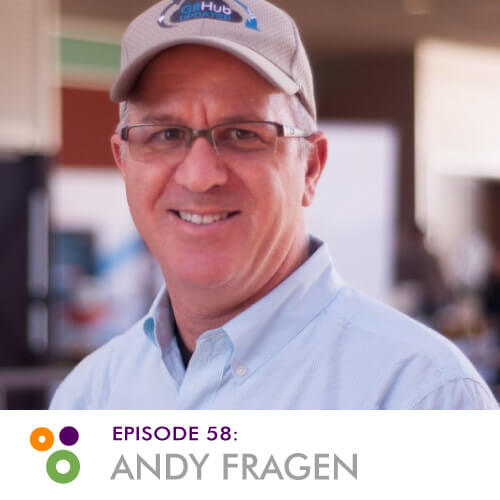
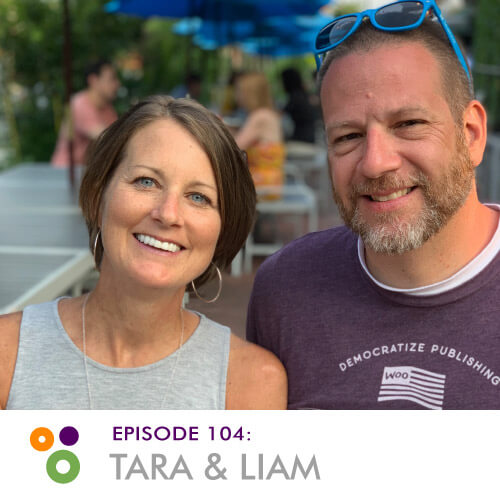
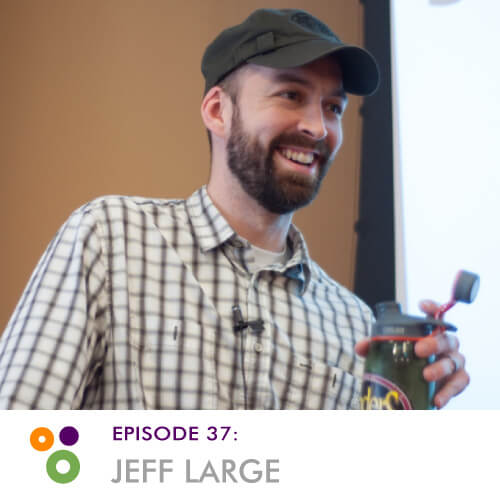
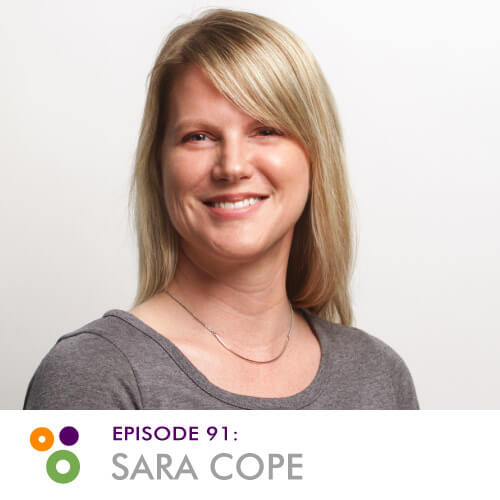
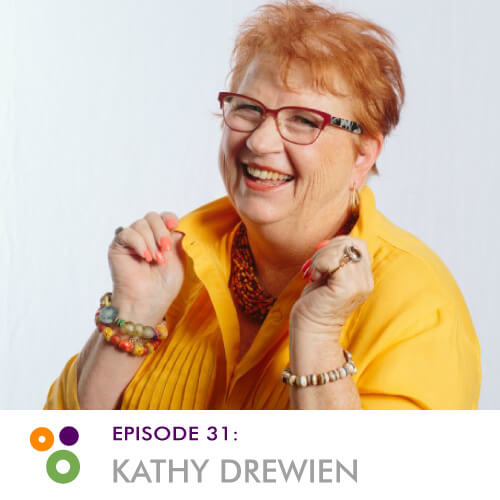
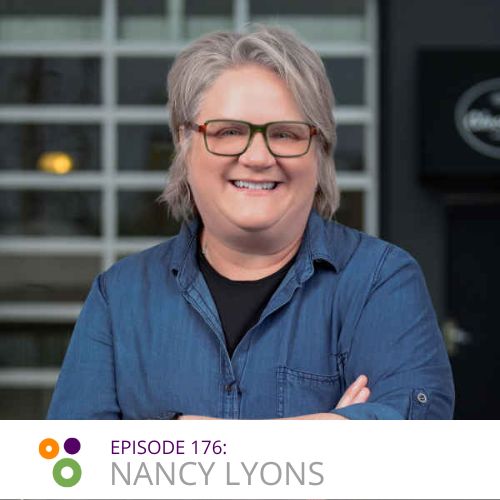
This man in the podcast has huge help in my life, I have been fortunate to know him personally and I too am Bangladeshi, he has helped me improve my English to the level it is in today, and he has been a elder brother to me more than a teacher. I’ve watched your podcasts here and there, started from youtube 2 years ago and kinda stopped watching regularly, but when I saw the name C.Shakhawat, I was in confusion, but after confirming it really was him all I felt was happiness. Thank you very much hallwaychats-staging.ulpgsyz6-liquidwebsites.com